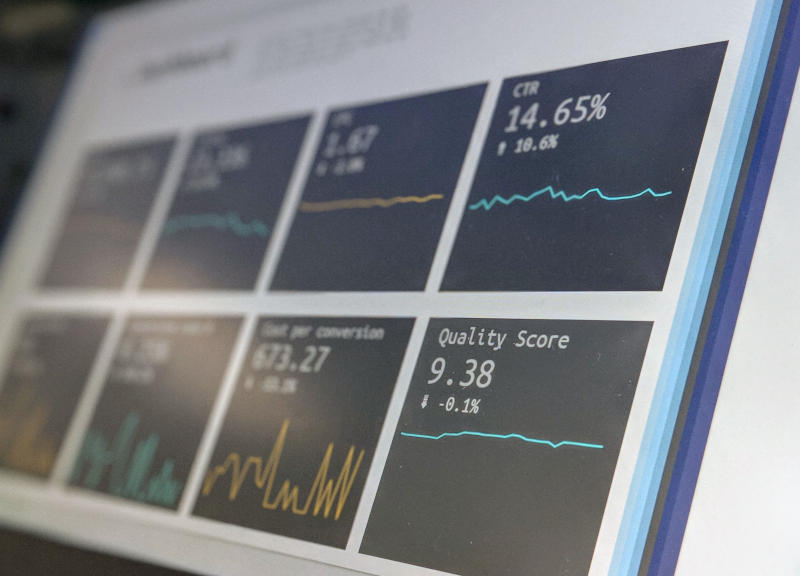 BIG DATA
BIG DATA
 BIG DATA
BIG DATA
 BIG DATA
BIG DATA
Rockset Inc., a startup with a speedy database of the same name, today disclosed that it has raised $44 million in funding to support growth initiatives.
Icon Ventures led the round. The venture capital firm was joined by Sequoia Capital, Greylock Partners and several other institutional investors. The investment brings Rockset’s total outside funding to $105 million.
Manufacturers often embed sensors in their industrial equipment to detect malfunctions. When a sensor collects data that suggests a failure may be imminent, the data must be analyzed immediately to facilitate quick troubleshooting. There are also other use cases, spanning areas such as cybersecurity and e-commerce, that require the ability to analyze data immediately after it’s generated.
Rockset’s namesake database makes it easier to implement such use cases. According to the company, the database can ingest information from sources such as industrial sensors and make it available for analysis in a fraction of a second. Applications can start running queries within two seconds of a record arriving.
“We believe modern data apps should operate on data in real time,” Rockset co-founder and Chief Executive Officer Venkat Venkataramani wrote in a blog post today. “The best apps are the ones that serve as a better windshield for your business and your customers, and not be a glorious rear-view mirror.”
One of Rockset’s flagship features is a capability called compute-compute separation. According to the company, it reduces the risk of performance drops in real-time analytics applications. Because real-time applications by definition have to process data quickly, sudden slowdowns can have a particularly significant impact on user productivity.
A typical database uses two separate software modules to ingest new records and analyze them. Those two modules, in turn, usually share a single pool of processor capacity. Should one module require more processor resources than usual, the other will be left with less compute power to draw on, which means it will run slower.
In practice, that means a sudden surge in the volume of incoming records that a database ingests can slow down analytics queries. The opposite is also true: A particularly complex query might cause a database to ingest new records slower.
Rockset says its compute-compute separation feature avoids such performance issues. According to the company, the feature assigns two separate pools of processor capacity to the module that ingests new records and the module tasked with analyzing them. As a result, a usage spike affecting one module won’t cause the other to slow down.
In April, Rockset expanded its database’s feature set by adding support for embeddings. An embedding is a mathematical structure used by artificial intelligence models to store the data they process. Thanks to the April update, customers can now more easily use Rockset to power their AI applications.
The company says that its database can ingest tens of millions of data points per second. Additionally, Rockset claims that the platform performs many tasks more cost-efficiently than Elasticsearch, a popular open-source alternative.
Rockset’s value proposition is drawing interest from enterprises. On occasion of its latest funding round, the company disclosed that its revenue and customer base have doubled in each of the past two years. To further expand its installed base, Rockset plans to grow its go-to-market team and invest in new database features.
Support our open free content by sharing and engaging with our content and community.
Where Technology Leaders Connect, Share Intelligence & Create Opportunities
SiliconANGLE Media is a recognized leader in digital media innovation serving innovative audiences and brands, bringing together cutting-edge technology, influential content, strategic insights and real-time audience engagement. As the parent company of SiliconANGLE, theCUBE Network, theCUBE Research, CUBE365, theCUBE AI and theCUBE SuperStudios — such as those established in Silicon Valley and the New York Stock Exchange (NYSE) — SiliconANGLE Media operates at the intersection of media, technology, and AI. .
Founded by tech visionaries John Furrier and Dave Vellante, SiliconANGLE Media has built a powerful ecosystem of industry-leading digital media brands, with a reach of 15+ million elite tech professionals. The company’s new, proprietary theCUBE AI Video cloud is breaking ground in audience interaction, leveraging theCUBEai.com neural network to help technology companies make data-driven decisions and stay at the forefront of industry conversations.